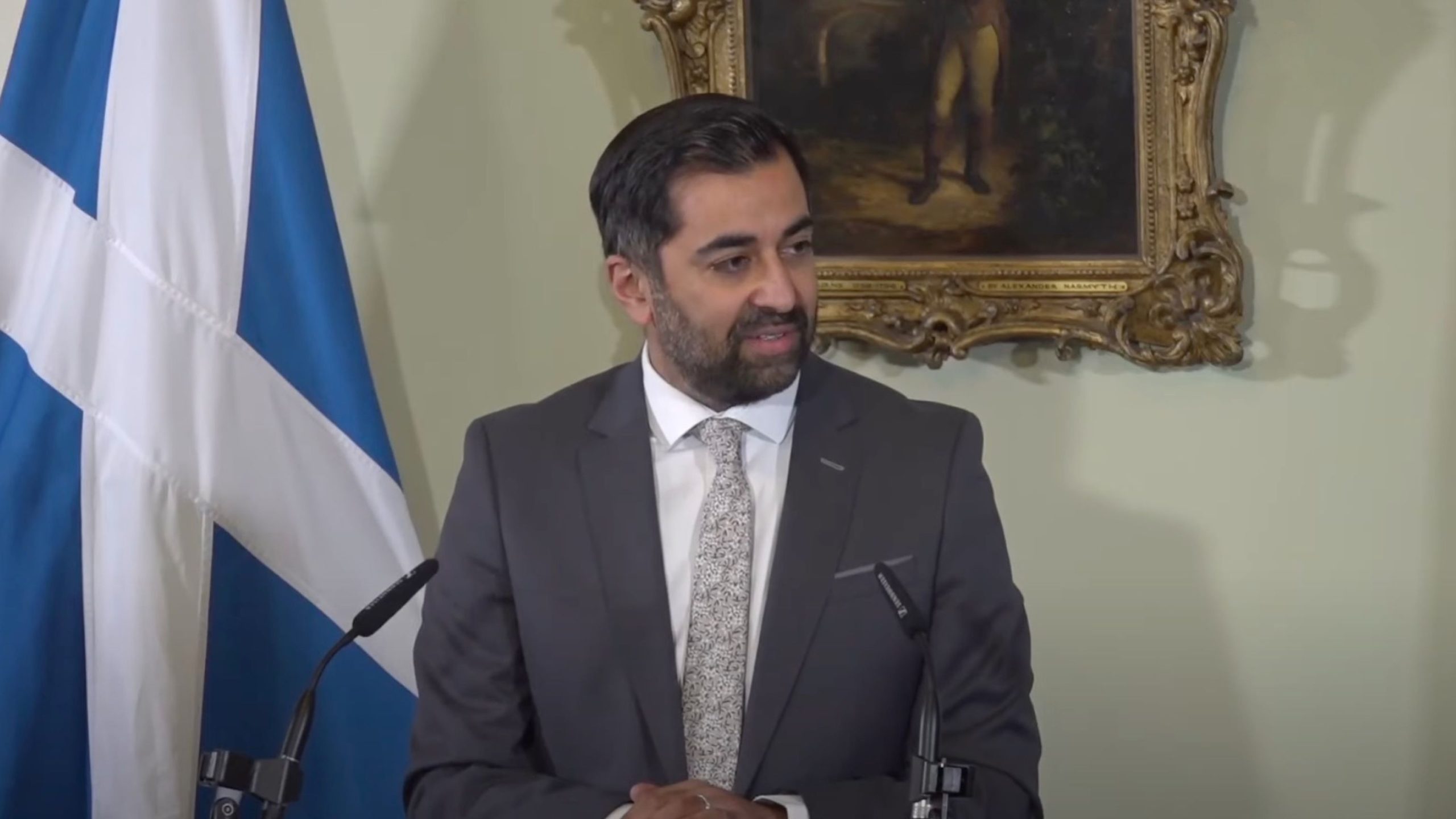Drastic events have thrown the Scottish leadership into disarray, as Scotland’s pro-independence party faces tumultuous times. Barely after a year in office, controversial pro-censorship First Minister Humza Yousaf’s term has prematurely ended following the downfall of his coalition government, putting the Scottish National Party’s (SNP) grip on power into jeopardy.
Yousaf’s leadership met an abrupt end after his daring decision to annul his pact with Green Party legislators after climate and gender policy disagreements took a turn. This decision plunged his government into uncertainty when the Greens opted to oppose him in a crucial confidence motion. With Yousaf at the helm since last March, it’s a major setback for the SNP’s aspiration to continue ruling Scottish politics and assert its stance for a new Scottish independence referendum.
One of his most notable missteps was his advocacy for the stringent Hate Crime Act. As justice secretary in 2021, Yousaf introduced the legislation despite warnings that it would undermine free speech and burden the police with having to pursue baseless complaints. Ironically, when the new hate crime law took effect earlier this month, the individual who received the most complaints under this law was none other than Humza Yousaf himself.
The Hate Crime and Public Order (Scotland) Act of 2024 extends the legislative framework to address hate crimes more comprehensively, but it also raises concerns about potential impacts on free speech. The inclusion of “stirring up hatred” offenses expands the scope of what can be legally scrutinized, covering additional characteristics such as age, disability, religion, sexual orientation, transgender identity, and variations in sex characteristics such as intersex status.
The law infringes on free speech by creating a chilling effect on open dialogue. The law stipulates that behavior must be threatening or abusive with a deliberate intent to stir up hatred to qualify as an offense. However, defining what constitutes “threatening or abusive” can be subjective, leading to concerns about overreach. For instance, the law provides that actions are not offenses if they are considered “reasonable” in context, but the ambiguity in what is “reasonable” might cause individuals to err on the side of caution and avoid speaking on sensitive topics altogether.













